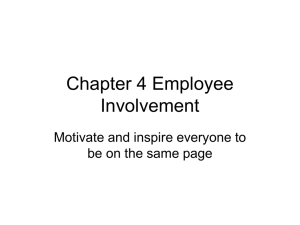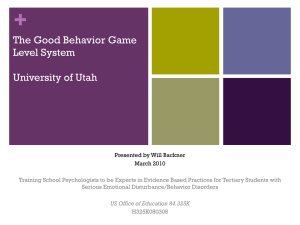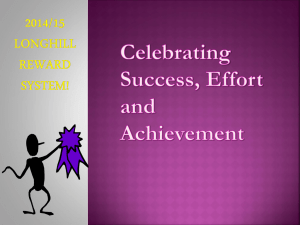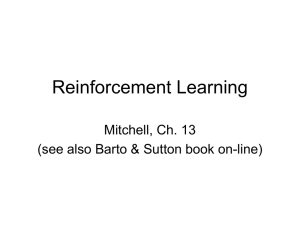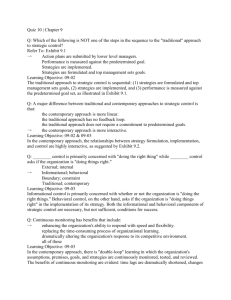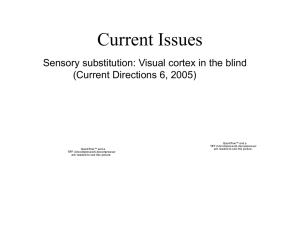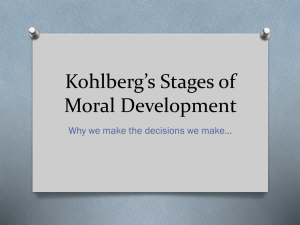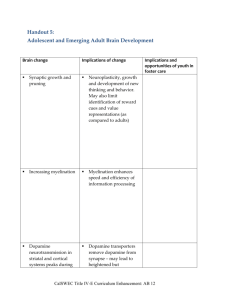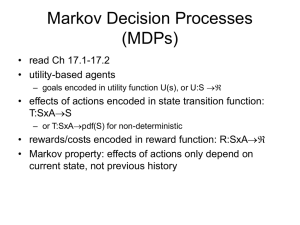Equality analysis form - University of the West of England
advertisement
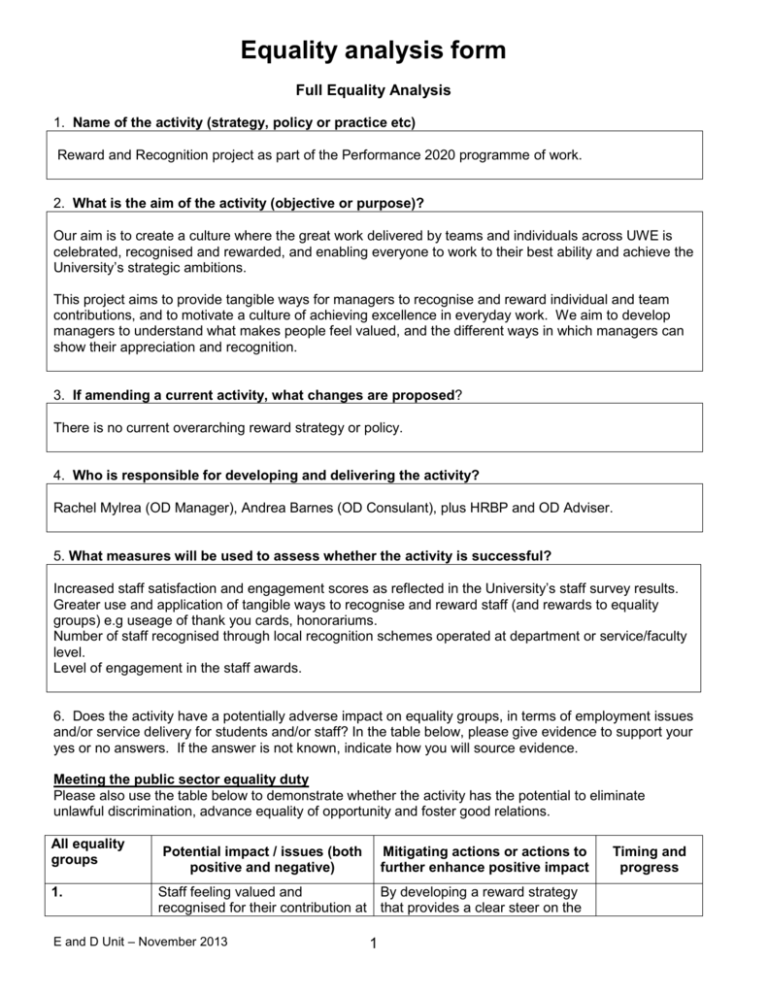
Equality analysis form Full Equality Analysis 1. Name of the activity (strategy, policy or practice etc) Reward and Recognition project as part of the Performance 2020 programme of work. 2. What is the aim of the activity (objective or purpose)? Our aim is to create a culture where the great work delivered by teams and individuals across UWE is celebrated, recognised and rewarded, and enabling everyone to work to their best ability and achieve the University’s strategic ambitions. This project aims to provide tangible ways for managers to recognise and reward individual and team contributions, and to motivate a culture of achieving excellence in everyday work. We aim to develop managers to understand what makes people feel valued, and the different ways in which managers can show their appreciation and recognition. 3. If amending a current activity, what changes are proposed? There is no current overarching reward strategy or policy. 4. Who is responsible for developing and delivering the activity? Rachel Mylrea (OD Manager), Andrea Barnes (OD Consulant), plus HRBP and OD Adviser. 5. What measures will be used to assess whether the activity is successful? Increased staff satisfaction and engagement scores as reflected in the University’s staff survey results. Greater use and application of tangible ways to recognise and reward staff (and rewards to equality groups) e.g useage of thank you cards, honorariums. Number of staff recognised through local recognition schemes operated at department or service/faculty level. Level of engagement in the staff awards. 6. Does the activity have a potentially adverse impact on equality groups, in terms of employment issues and/or service delivery for students and/or staff? In the table below, please give evidence to support your yes or no answers. If the answer is not known, indicate how you will source evidence. Meeting the public sector equality duty Please also use the table below to demonstrate whether the activity has the potential to eliminate unlawful discrimination, advance equality of opportunity and foster good relations. All equality groups 1. Potential impact / issues (both positive and negative) Mitigating actions or actions to further enhance positive impact Staff feeling valued and By developing a reward strategy recognised for their contribution at that provides a clear steer on the E and D Unit – November 2013 1 Timing and progress work which aims to enhance overall engagement and performance at an organisational level. This will be measured by a range of metrics noted in Q 5. 2. Any element in discretion in awarding rewards can be highly vulnerable to bias. 3. Some forms of rewards could be inaccessible for a particular group. 4. Stereotypical assumptions related to protected characteristics could influence who will be offered opportunities and the criteria of awarding rewards (EHRC guidance). 5. Managers are not aware of the tangible ways (initiatives) that they can recognise and reward staff. 6. Managers are unable to value staff and recognise their contribution positively. E and D Unit – November 2013 range of organisational, team and individual recognition and reward that the university will engage in, with supporting guidelines for both organisational and initiatives / schemes. By involving staff (through focus groups, EEE and surveys) and seeking their views on what is important to them, this will inform future design work. Train managers on: - unconscious bias - understand what motivates staff and how to apply this in everyday practice in a fair and transparent way. In the design stage of any recognition or reward scheme, consider the implications for different groups from a recipient point of view, and how rewards may be tailored to an individual, or altered to appeal to a more diverse group. Ensure that guidelines are produced and training provided to managers addresses the issue of fairness and avoiding unconscious bias in opportunities, recognition and rewards initiatives. Raise awareness through training such as High Performance Leadership programme for newly appointed managers, and HR bitesize, Expresso sessions. Refresher training for existing managers. - Incorporate into appropriate manager training the importance of recognising and valuing staff, and how to do this at UWE. - Motivation wording is already incorporated into the Leadership behaviour descriptors on which leaders will be measured against. - Motivation wording is also incorporated into competency framework and job descriptions. - Selecting and recruiting talent into the organisation against leadership behaviours and competencies. 2 - Incorporate into new online induction programme for all staff. - PDR objective setting to include professional and leadership behaviours. 7. There is a perception that rewards are given unfairly without transparency. 8. Rewards could be withheld for those who complain about about harassment or discrimination (EHRC guidance). Recognition and reward which offer opportunities or activities outside of normal hours of work, may exclude those with caring responsibilities. Women and men 9. Annual monitoring of the data e.g. - no. and type of rewards given to individuals, teams. - reasons for reward - supporting equality data Review and put in place actions to improve useage and application where appropriate. Include this in the guidance as this could be considered as harassment. Ensure that opportunities, activities, benefits offered as part of reward and recognition initiatives or schemes are inclusive of those with caring responsibilities. Managers should encourage nominations from all staff. Monitoring of data (see above) should help to assess and address this potential issue. Target setting should reflect and be adjusted to reflect the number of working hours of each member of staff. See action 2 to 7. If rewards have an element of ‘self nomination’ female staff may be less likely to self nominate. Part time staff 10. Some targets may difficult or impossible for part time staff / workers to achieve. 11. There could be negative assumption on the commitment of part time staff. Staff survey did not show any indication that trans people have negative perceptions on Reward and Recognition, however there is limited data available for this group. BME staff are less successful in securing career development opportunities (staff compendium 2014). Trans people 12. Black and minority ethnic groups 13. Disabled people 14. Explore any ideas and issues relating to reward and recognition with LGBT staff network. Continue to seek information and guidance from organisations such as stonewall. See action 2 to 7. Offer refresher training to existing managers on recruitment and selection process. Consider external and internal adverts to attract wider candidate pools. Ensure there is a robust process for internal opportunities. Targets and measures must be realistic and achievement, and individually focused. Training and guidance will reflect this. Any reward measures must take into account reasonable adjustments for disabled staff (EHRC guidance). E and D Unit – November 2013 3 Disabled staff were less likely to be rewarded honorariums (2013, 2014 data). Younger or older people 15. 16. People of different religion and beliefs 17. Lesbian, gay, bisexual people 18. Marriage and civil partnership 19. Pregnancy and maternity 20. Review of honorarium scheme to consider whether there are any issues pertinent to this group to inform design and implementation of revised scheme. See action 7. There may be a difference in what Design a variety of recognition is valued e.g an older person may and reward options that would be value an enhanced pension, valued across the age range. For whereas a younger person may team based rewards, managers value career development. will need to ensure that, on balance, the reward is of value to all. Using length of service as a See action 2 to 7. criterion for determining reward is potentially discriminatory to younger staff. Cultural differences in rewards Ensure that opportunities, e.g. bottle of wine, may not be activities, benefits offered as part appropriate for all groups. of reward and recognition initiatives or schemes are inclusive of cultural differences. See action 3 and 5. There is a negative perception on Explore any ideas and issues fairness of pay among this group relating to reward and recognition (staff survey 2014). However with LGBT staff network. there is a lack of data for this Continue to seek information and group. guidance from organisations such as stonewall. Married, civil partnered staff may Ensure that opportunities, be less likely to access an award activities, benefits offered as part that involves travel. of reward and recognition initiatives or schemes are inclusive. See action 3 and 7. The assessment or review period See action 3 and 7. for determining reward or recognition, may negatively impact those on maternity or adoptive leave. 7. Please give evidence of how you have engaged equality groups in the equality analysis process. Is further engagement required? The project will seek feedback from equality groups to gain their insights into what reward and recognition is valued which will in turn inform design work, implementation and development of training and guidance. 8. What action can be taken to mitigate any potential negative impacts or address different needs? Please comment and then complete an action plan (see appendix 1). See above. 9. Please indicate the level of equality relevance: High Medium E and D Unit – November 2013 4 Low 10. Equality analysis sign off: Faculty Dean or Alison McIver Head of Service Faculty / service Rachel Mylrea and Andrea Barnes Date 26 June 2015 Please return this form to the Equality and Diversity Unit for feedback, the start of the consultation process and publication. E and D Unit – November 2013 5 Equality analysis - action plan Appendix 1 Name of activity: Plan completed by: Issues Service / faculty: Actions required Responsible Person Resources required Information/data required Consultation Monitoring and review arrangements Publication Other actions Please return form to the Equality and Diversity Unit E and D Unit – November 2013 6 Target date Success Indicators What progress has been made?
